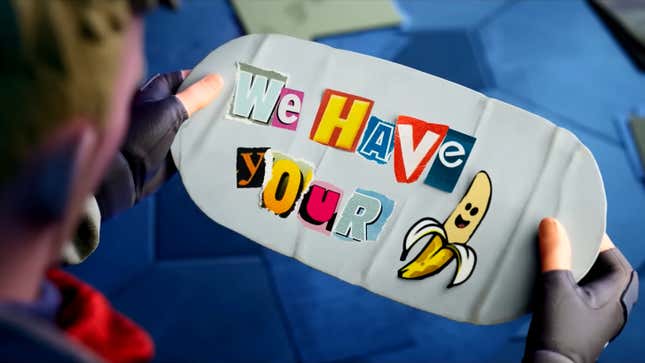
Last week, reports broke that Fortnite maker Epic Games had allegedly been the victim of a hack, with a supposed ransomware group claiming it had snagged 200 gigabytes of internal data. Almost immediately, however, Epic announced that it had no evidence any such hack had taken place. Now, it turns out that the supposed breach was, in fact, complete bullshit, with the hackers themselves admitting that they were running a scam operation.
According to a new report from the Australian cybersecurity site Cyber Daily, Mogilevich, the alleged hacker gang that claimed to have stolen nearly 200GB of company data from the Fortnite developers at the end of February, isn’t a hacker gang at all. Apparently, Mogilevich is a group of “criminal geniuses” and “professional fraudsters”—their words, not mine—who’ve used the links on their darkweb blog to feign stealing from Epic Games.
“Unfortunately, this link led you to an important announcement of our business instead of evidence of a breached database,” a Mogilevich spokesperson called Pongo told Cyber Daily. Pongo explained that they are not a ransomware group but “professional fraudsters,” and that the fictitious Epic hack was part of a strategy to “[take] advantage of big names to gain visibility as quickly as possible, but not to fame [sic] and receive approval, but to build meticulously our new trafficking of victims to scam.”
Further detailing how the group intended to make real money from fake hacks, Pongo said, “Now the real question is? Why confess all this when we could just run away? This was done to illustrate the process of our scam. We don’t think of ourselves as hackers but rather as criminal geniuses, if you can call us that.”
Epic Games smelled the BS from miles away
But what happened (or didn’t happen) here? On February 28, Cyber Daily reported that Mogilevich had allegedly hacked Epic Games, claiming to have stolen 189GB worth of company data. This data, the group claimed, included “email, passwords, full name, payment information, source code, and many other data,” with all the information up for sale on the group’s website. Mogilevich gave Epic Games until March 4 to respond, threatening that something would happen if Epic didn’t get back to them. Well, it turns out that something was the admission that the whole thing was a hoax.

For its part, Epic Games, which said it had “zero evidence” that a hack had occurred, took to Twitter on March 4 to confirm that the investigation into the breach had concluded. The takeaway? Yeah, it was a “scam.”
Kotaku has reached out to Epic Games for comment.
Although this hack turned out to be a hoax, game companies have experienced massive data breaches in the past. In December 2023, Insomniac Games was the victim of a hack that revealed data on the studio’s upcoming projects and the challenges and tough decisions that even a studio producing hugely successful blockbusters sometimes faces.